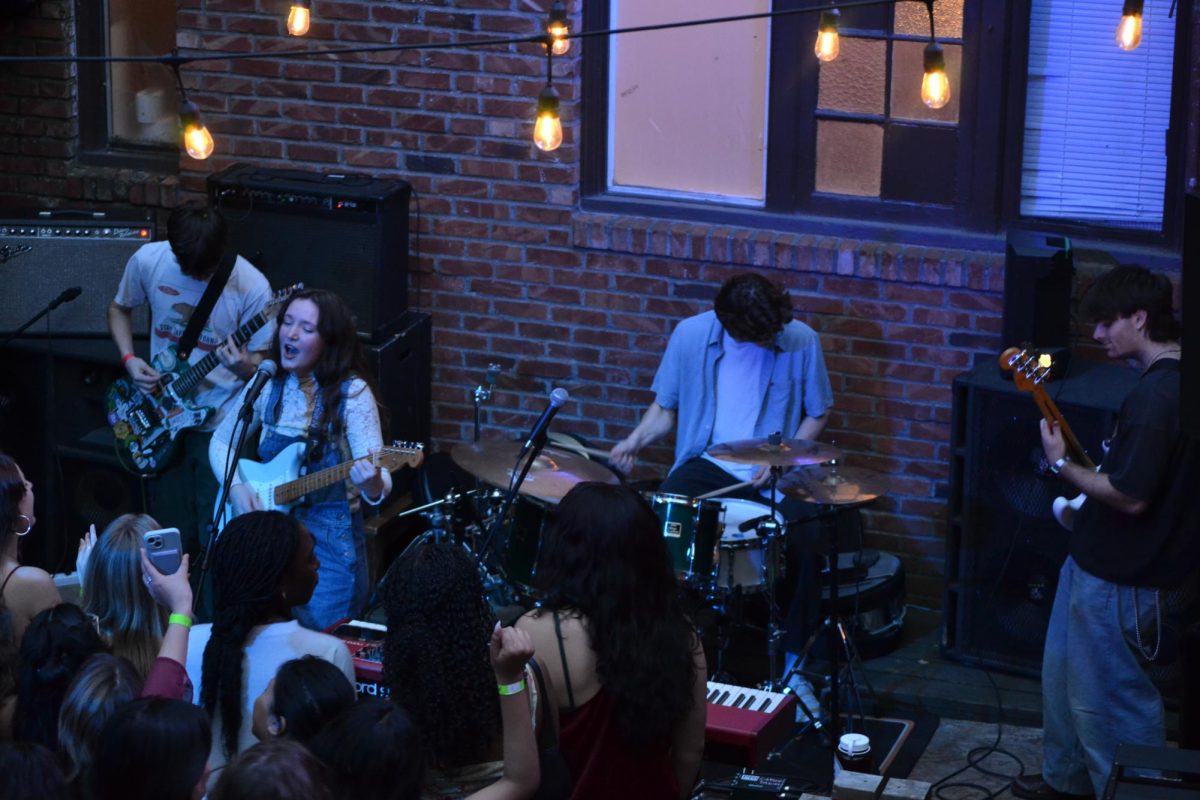First Friday Colloquium educates students on health crisis in Gaza
In 2008, Dr. Mary Segall was working with volunteers in Gaza when an Israeli airstrike flew over head, killing hundreds of Palestinians.
Decades of violent conflict between Israelis and Palestinians over the control of land in Israel has led to thousands of deaths, and has motivated people like Segall to action.
“The feeling of helplessness has fueled me for nine years,” Segall said.
On Feb. 1, the Social Justice and Cultural Studies Department hosted a colloquium entitled “Health Crisis in the Middle East” where Segall, along with Dr. Alice Rothchild, a filmmaker, writer and activist, gave a talk on the growing humanitarian crisis in Gaza.
Both speakers hope that they can inspire a new generation to apply their talents to improve the world around them.
Rothchild’s work in the Middle East was inspired by her upbringing. Growing up in a Jewish family, Rothchild said that she loved Israel and had never heard of Palestine.
“I didn’t question what I’d learned as a child, and then I went to college in the 60s and got political and started learning about colonialism, racism, islamophobia and all the things that were brewing in the 60s and beyond,” Rothchild said.
Rothchild began engaging with groups that discussed the Israel-Palestine conflict, but she soon found that it was a hard topic to get people to talk about. Noticing that people would often grow very upset during discussion, Rothchild used her medical background to change her approach.
“I realized that since I’m a physician, maybe I can explore health issues and talk about the realities on the ground and that would give me entrée into talking about the reasons why Gazans do not have water.”
Reasons, according to Rothchild’s presentation, that include sewage dumpage and water pollution due to the Israeli blockade in Gaza.
Rothchild highlighted other growing health issues in Gaza, such as growing cancer rates, continuous trauma and a lack of rehabilitation services.

Segall discussed how the United States’ aid in Gaza is continuously decreasing, stating that diplomacy efforts are barely funded while the defense budget continues to increases. Segall, who was one of the first Peace Corp volunteers in Gaza, hopes that the next generation of students can step in to fill the need in places like Gaza.
“There is a world and there is much that we as health professionals can do and we need to be there,” Segall said.
“We come from a very privileged society and we can do something to make the world a better place.”
Rothchild also hopes that young people are inspired to go beyond the boundaries of their city. Rothchild believes that education is the first step, stating that getting people interested and curious will encourage them to look into things that they do not know. From there, Rothchild hopes that students will apply that knowledge to their work.
Rather than focusing all of their attention on getting into an expensive medical school or landing a prestigious residency, Rothchild wants medical students to also recognize that they can change the world around them with their work.
“That’s important stuff, but we practice medicine in a human context, whether you do international health or local health,” Rothchild said.
Junior Natalie Goobes, along with a large group of other students, came to the First Friday Colloquium to become more educated on a topic, completing the first step of Rothchild’s goal for the next generation.
“Sometimes in class we don’t get to every subject or topic and these colloquiums are nice to have for more information,” Goobes said.
“They can inspire us to learn more about a topic that might interest us.”
Inspiration can come in many forms, and it can lead people to pursue many different passions.
Segall and Rothchild became passionate about the Israeli and Palestinian people, and they both hope that by sharing their knowledge, they can help a few people become more informed and more involved.

















































































